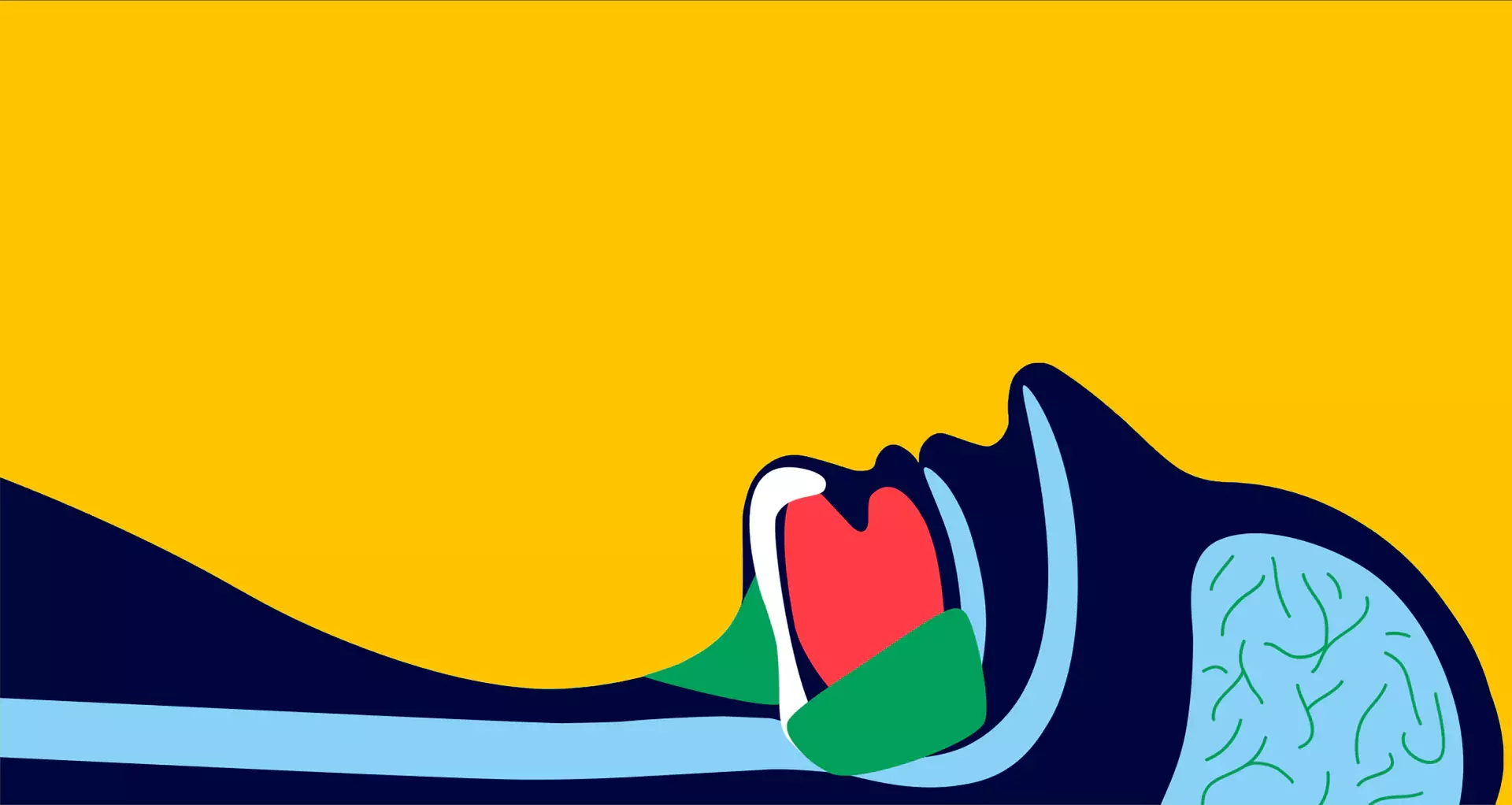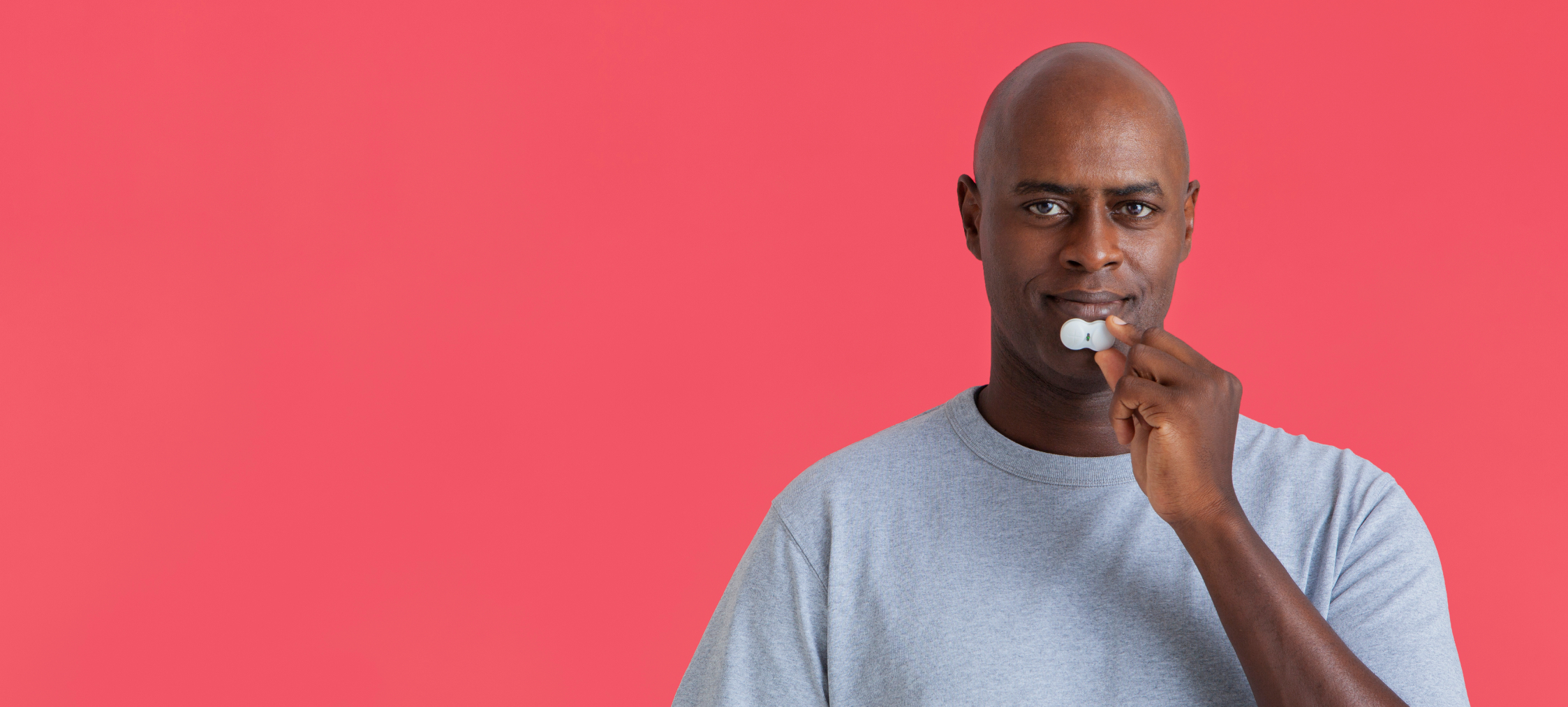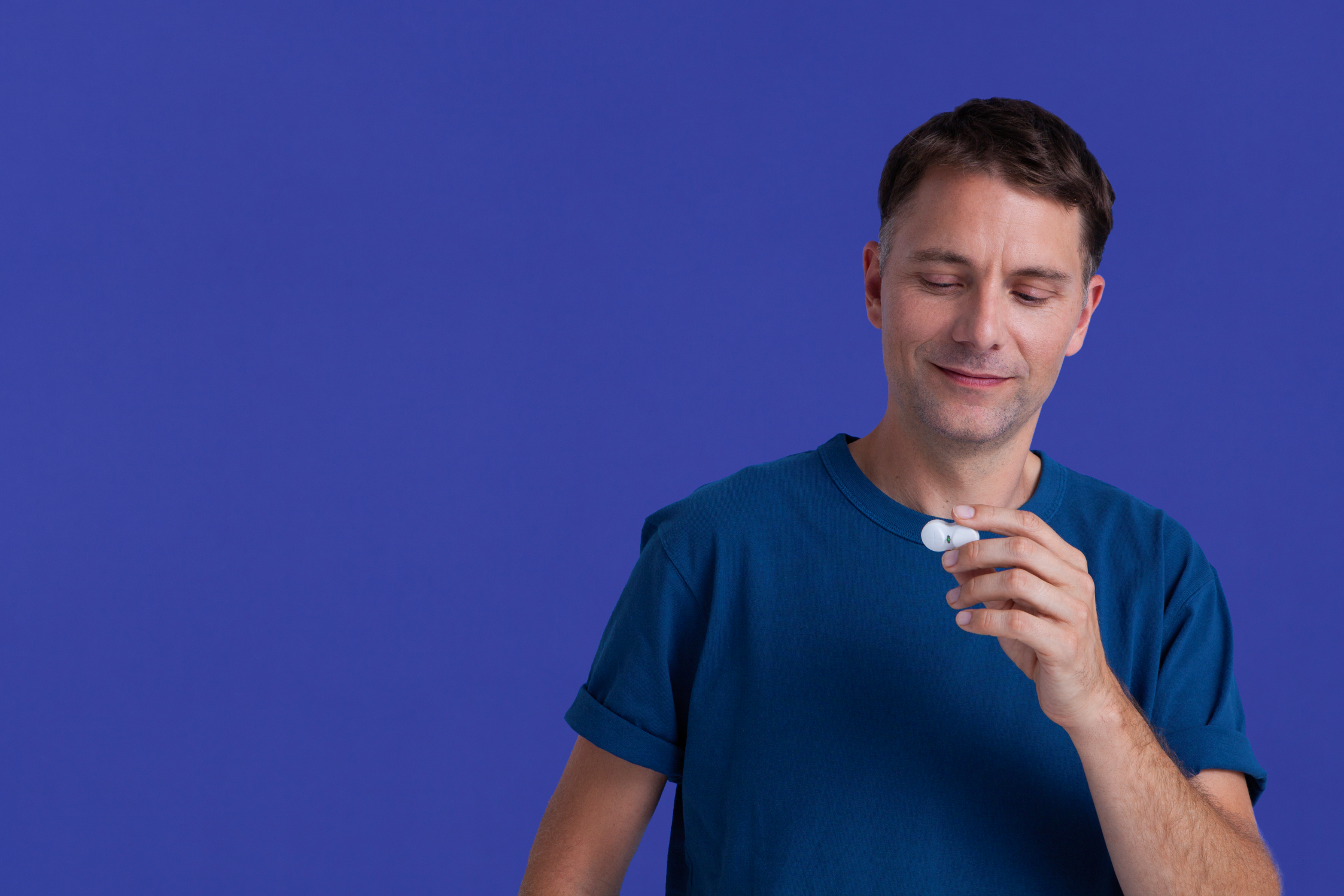Sleep apneahas a profound
impact on your daysnights.
It is not so simple to see the link between feeling irritable during the day and suffering from sleep apnea at night. Signs and symptoms of obstructive sleep apnea include:
- Excessive daytime sleepiness
- Loud snoring
- Observed episodes of stopped breathing during sleep
- Abrupt awakenings accompanied by gasping or choking
- Awakening with a dry mouth or sore throat
- Morning headache
- Difficulty concentrating during the day
- Mood changes, such as depression or irritability
- High blood pressure
- Decreased libido
Sleep apnea deprives your body of a 100% restorative sleep. Consult a medical professional if you have, or if your partner observes, the following:
- Snoring loud enough to disturb your sleep or that of others
- Waking up gasping or choking
- Pausing in your breathing during sleep
- Having excessive daytime drowsiness, which may cause you to fall asleep while working, watching television or even driving a vehicle
Sleep apneacan affect your health.
Left untreated, sleep apnea leads to chronic diseases and may even be fatal. Here are the effects it might have on your body.
Risk of stroke.
-
Risk of stroke.
People with untreated sleep apnea are 2 times more at risk.
-
Risk of depression.
45% of people suffering from depression have sleep apnea.
-
Risk of car accidents.
People suffering from sleep apnea are 2.5 times more likely to have a fatal road accident.
Risk of heart failure.
-
Risk of heart failure.
For people with untreated sleep apnea, this risk is increased by a factor of 2.5.
-
Risk of cardiovascular mortality.
For people with untreated sleep apnea, this risk is increased by a factor of 5.
-
Risk of drug-resistant hypertension.
83% of people with drug-resistant hypertension also have sleep apnea.
Risk of diabetes.
-
Risk of diabetes.
72% of people with type 2 diabetes also have sleep apnea.
-
Risk of morbid obesity.
77% of people with morbid obesity also have sleep apnea.
There is no need to suffer. There are simple ways to determine if you have sleep apnea and many therapies that can help you sleep better and live healthier. Talk to your doctor about getting tested.
There is no need to suffer. There are simple ways to determine if you have sleep apnea and many therapies that can help you sleep better and live healthier. Talk to your doctor about getting tested.
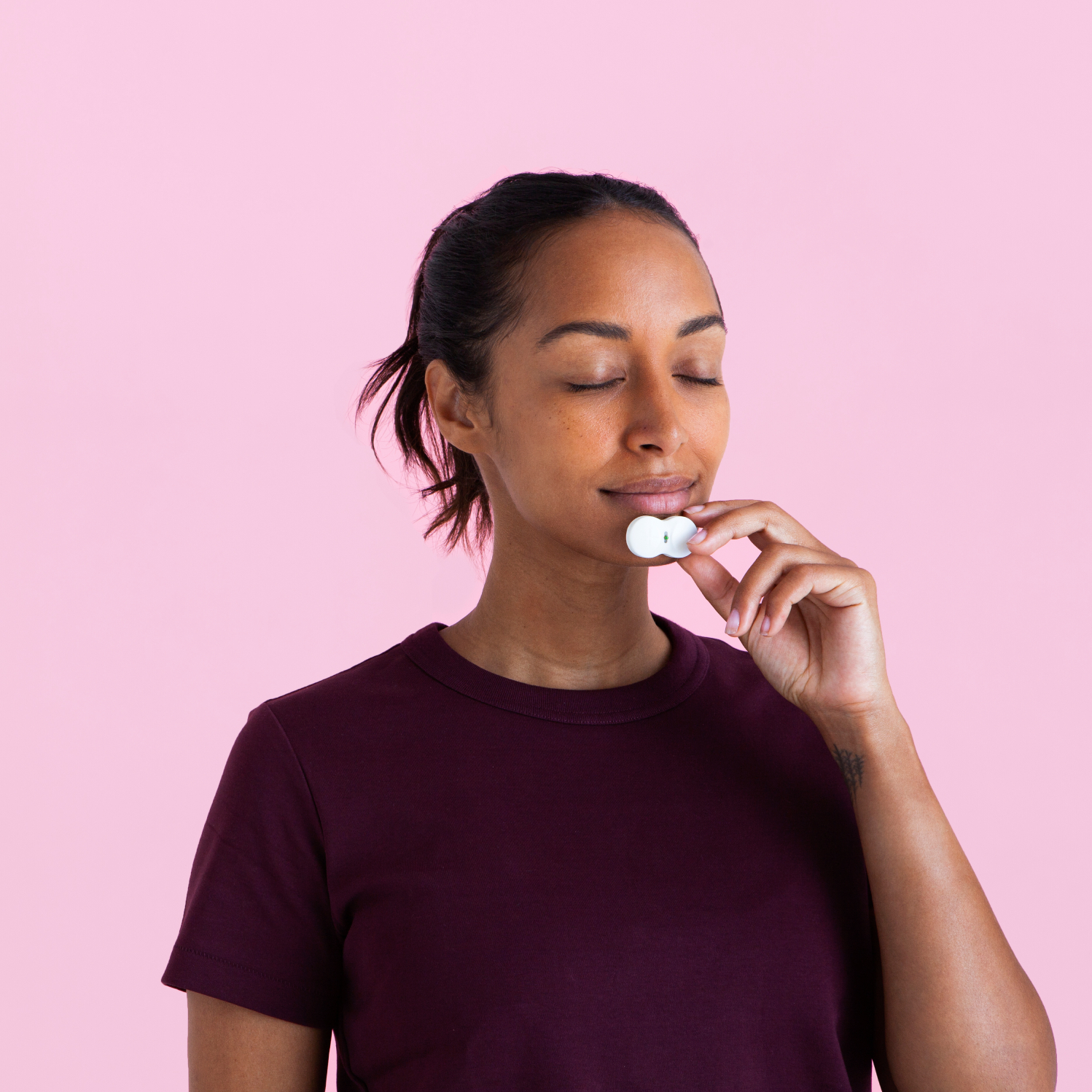
A sleep test shouldn't
becomplicated.
becomplicated.
So we've made it incredibly simple!
A small sensor placed on your chin that makes possible the evaluation of your sleep in the comfort of your own home.
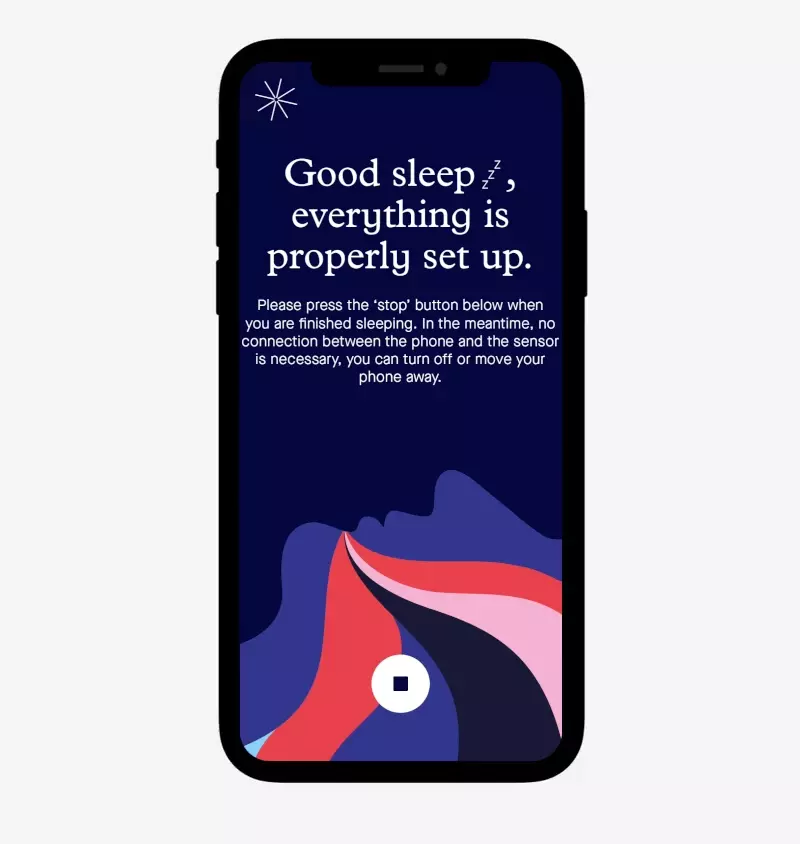
Has your doctor prescribed
a Sunrise homesleep test?
With this medical device, your doctor will be able to see how you sleep, including the following:
- Apnea / Hypopnea risk
- Respiratory effort
- Sleep stages
- Total sleep time
- Head position
- Arousals
How to use your
Sunrise homesleep test?
Sunrise homesleep test?
-
Get prescribed by your MD.
-
Set up the device at home.
-
Get your sleep tested.
-
Recycle the sensor.
Frequently Asked Questions.
-
How can I get a sensor?
The Sunrise home sleep apnea test is available on prescription only. If you suspect having sleep breathing disorders, you should talk to your doctor about getting a home sleep study.
-
How do I attach the sensor?
The sensor comes with two different adhesives: a double-sided adhesive placed between the sensor and your chin and a second adhesive bandage that is placed over the top of the sensor to secure the sensor through the course of the night.
-
How can I start a sleep test with the sensor?
Once you have received a sensor, please open the App, scan the QR code provided, push the ‘+’ button on the sensor, place it on the chin with the adhesives, and launch the recording from the App. You will find more detailed instructions in the Quick Start Guide provided with the box.
-
What happens after the Sunrise home sleep apnea test?
A sleep specialist reviews the results. They will determine if you suffer from a sleep disorder and what equipment or treatment you need. A report will be sent to the provider who ordered the study (usually within days after the sleep study has been completed). Your doctor will communicate the results to you and the next steps.
-
Does the sensor allow for multi-night testing?
Yes, the Sunrise multi-night sensor allows for up to 3 sleep sessions of 10 hours each.
These sleep sessions can be consecutive or non-consecutive. -
Is it possible to use the Sunrise sleep test for children?
The FDA approved age of 18 years or older.
-
Do you offer a recycling program?
Yes, a prepaid return shipping envelope is included in every Sunrise sensor box for the purposes of recycling.
-
Are there patients that should not be tested using the Sunrise sensor?
In general noting the FDA approved age of 18 years or older, the only patients that would not be candidates for testing with the sensor are bearded individuals that are unwilling to shave the area just below their lip (often referred to as the soul patch) or patients with conditions affecting the rotation of the condyle in the temporo-mandibular joint.


